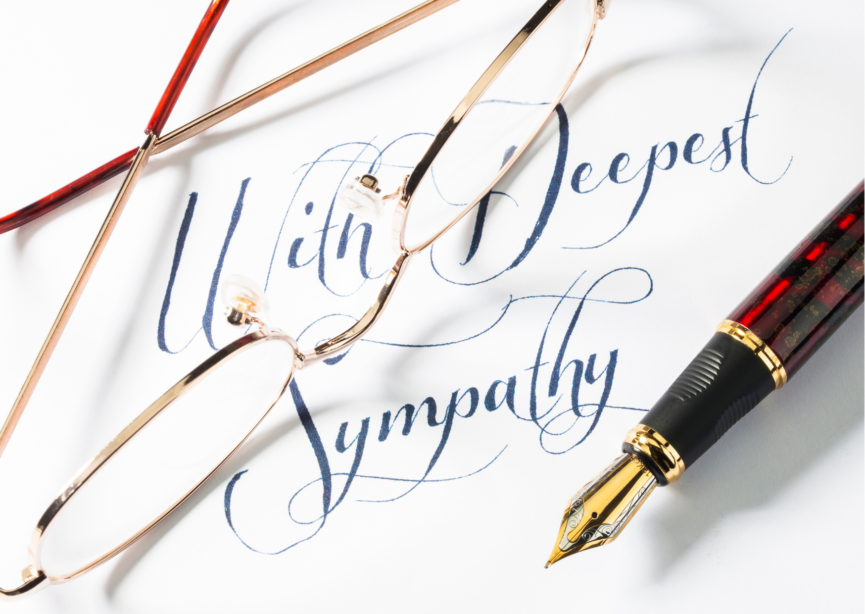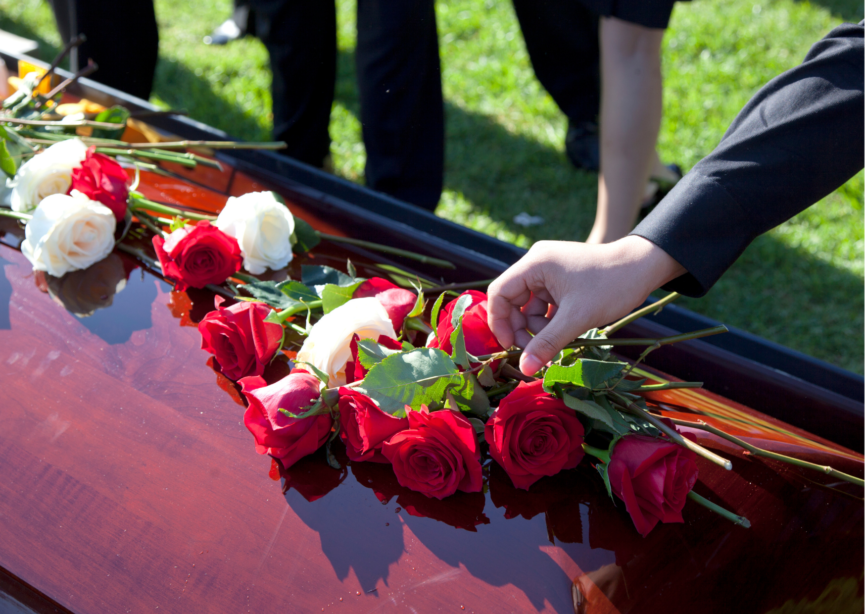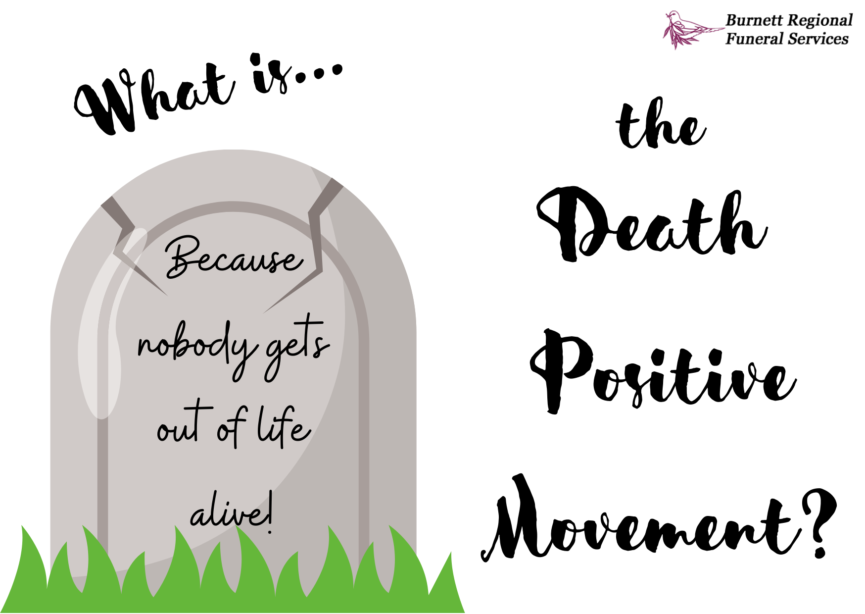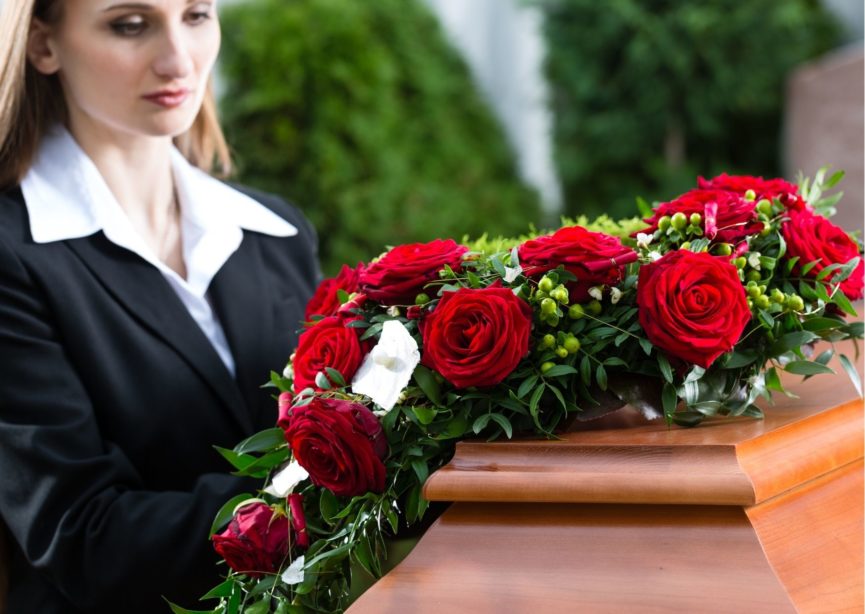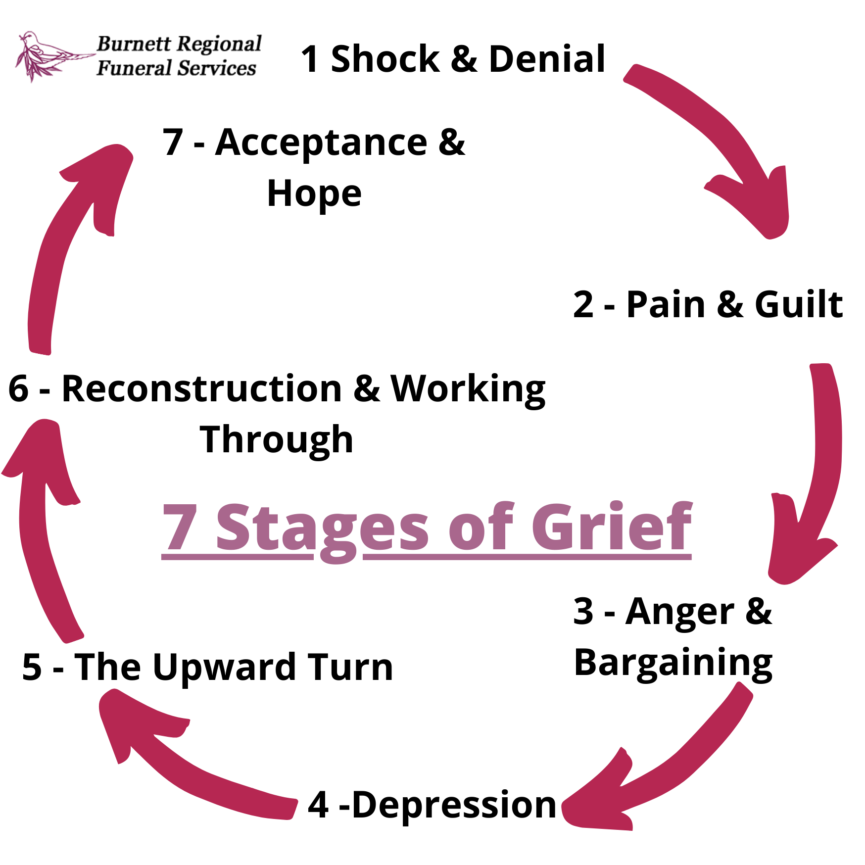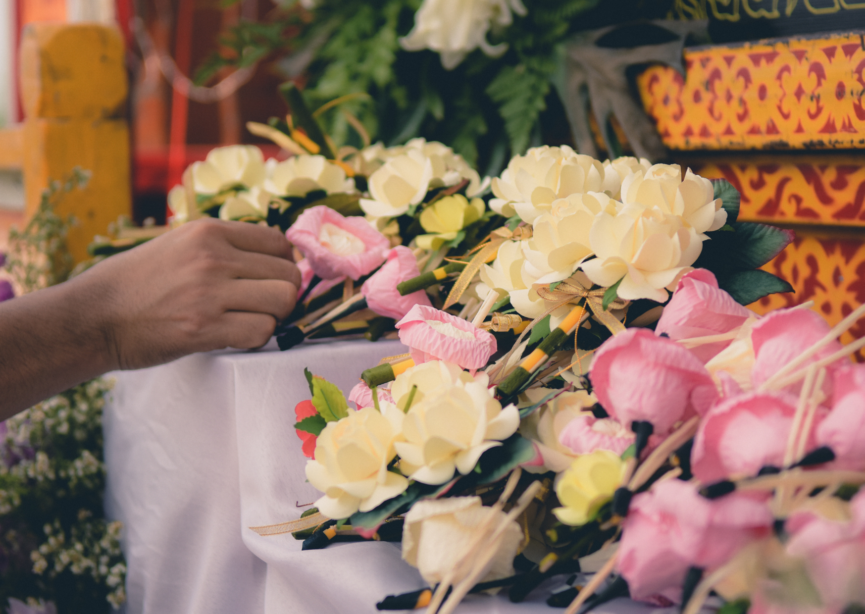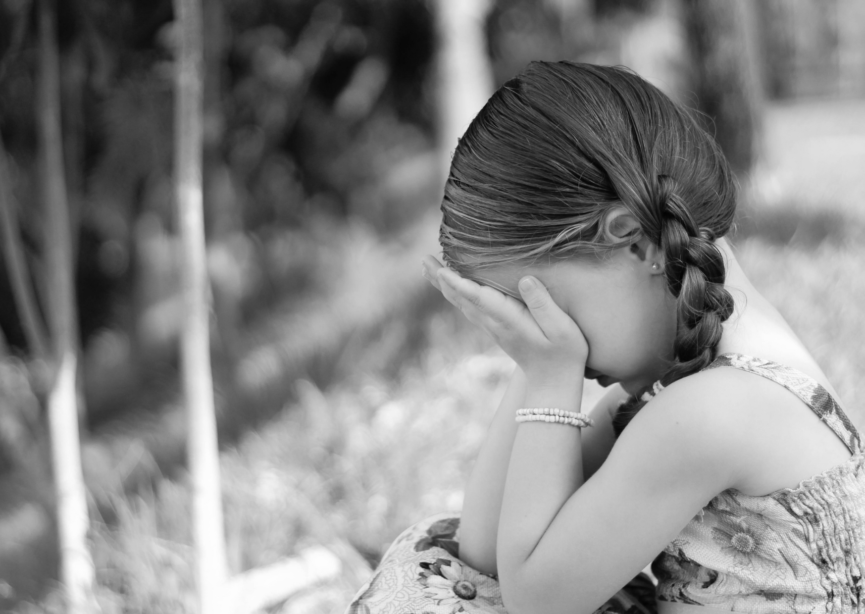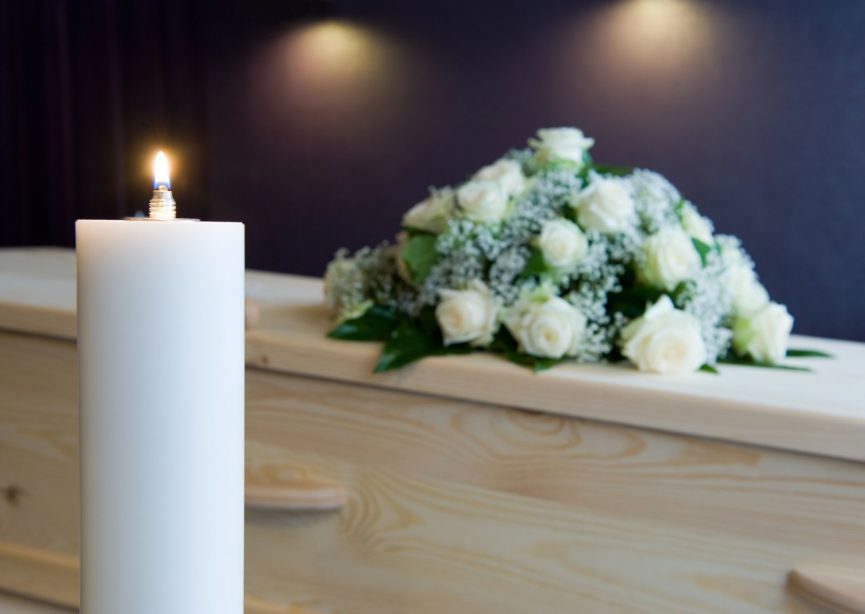Writing a good sympathy card is an experience that is often emotional and challenging. We want to adequately convey our love, support and sympathy, but at the same time we also don’t want to say the wrong thing. We want the person we’re writing the message for to know we are thinking of them and we are sorry for their loss, but we don’t want to upset them more. The truth is that there’s isn’t a perfect way of expressing your condolences to someone who has lost someone they love. No matter how much we want to, nothing we can say will heal their pain or bring their loved one back. We can, however, provide some comfort in letting them know that they are not alone, and that both they and the person they have lost are loved. The aim of a well written condolence message is to convey support, empathy and comfort. Our top tip for writing a good sympathy card is to sit down and take your time. Don’t let the fear of saying the wrong thing cause you to say nothing at all. Knowing someone is there can go a long way to someone feeling seen and supported in a time of grief. Sometimes we need to show people that in darkness, there can be light. Your message just might be that flicker of light that is needed. We suggest that you write your condolence message in first person, and be as specific as you can. Do you have a favourite memory of the person who has passed? Share it! Make sure you say it your way, too. Don’t rely on the message that is already printed inside the card – it’s the words that come from you that count the most. The following are some examples of condolence messages for different situations. Feel free to use these and change them accordingly if you so wish, or to draw inspiration from them to come up with your own. General sympathy note wording Dear (name), I’m so sorry for your loss. I don’t know exactly what to say, but I want you to know that my thoughts are with you and I wish you comfort and peace. Wishing you strength and comfort through this difficult time. Please accept my warmest condolences. I’m truly sorry for your loss. Please know that I am here for you during this time (however please do not say this unless you genuinely mean it, or better yet, make a direct offer of practical help) Words fail to express my deep sorrow for your loss. Words can’t express how much (name of deceased) has meant to me over the years. He/she always brought so much light to the lives of those around him/her and he/she will be truly missed. I know how much (Name) meant to you, and I can’t imagine what this loss feels like. Loss of a mother There are so few words that can truly offer comfort when we lose the … Read More
A guide to funeral etiquette
Attending a funeral can be an overwhelming experience, especially if you’ve never attended one before. In this blog post we’ll give you the lowdown on what to expect and what is and is not appropriate when it comes to funerals in Australia. While generally speaking, modern society is less formal these days, there are times in life when formality is still required. Generally speaking, funerals are one of the occasions. What to wear In Australia, funerals are generally sombre events, and as such it is usually appropriate to wear conservative clothing in dark or muted colours. While both our culture and events such as funeral are often a bit more relaxed nowadays than in past decades, this means it is easier than ever to show up wearing the wrong thing. How you dress at a funeral reflects the level of respect you are showing to the grieving family and the deceased person, so unless the family has requested those in attendance dress in a particular way, we suggest keeping it smart, neutral and simple. For men, a suit in a dark colour – black, navy or grey – with a clean, ironed shirt and decent shoes are a safe bet. We’d also suggest wearing a dark tie. If you find when you arrive that things are a little more relaxed, then you can always lose the tie and jacket, but you’ll still come across as appropriate and respectful. What not to wear to a funeral for men: Baseball caps Tracksuits Thongs Running shoes Appropriate funeral attire for women can be a bit more of a minefield, simply because women tend to have more choices for the types and styles of clothes available to them. Unless the family have requested otherwise, keep the colour of your chosen outfit neutral. A suit, a simple dress or pants or a skirt with a formal top are all suitable choices. What not to wear to a funeral for women: Anything with a low neckline Short shorts or short skirt/dresses – keep it below mid-thigh length Loud, statement jewellery For both – avoid bright colours unless it has been specifically requested by the family. What should I do when I hear someone has died? If you want to reach out to the family of the deceased person, then go for it. However, it pays to be mindful of how you go about doing so. Remember that this is a deeply traumatic time in their lives, so rather than knocking on the door or calling them, it is less invasive to send a flowers or a card and let them know that your thoughts are with them. Only write on the card that you are there to help with whatever they need in the following weeks and months unless you are truly prepared to follow through on this offer. Where are funerals held? Where the funeral is held will vary depending on the wishes of the family and the final wishes of the person who has … Read More
What is the Death Positive Movement?
Have you ever heard of the Death Positive Movement? If not, you’re definitely not alone. You might be sat here reading this and scratching your head about what on earth we’re on about, so in this blog post we’ll explain to you what the death positive movement all about and why it could be helpful. So what’s it about? The death positive movement is based on the belief that by not talking about dying and death openly, we are doing our society more harm than good. And let’s face it – death isn’t a topic that usually randomly pops up in day to day conversation, is it? In contrast, people don’t like to talk about death. We all die, but to talk about that and face up to the truth of the matter is deeply uncomfortable for most people, so we keep it behind closed doors, we stuff our fear of death into a deep, dark box and hide it away, never to be discussed willingly again. What do you think about death? When you think of the word death, what words, thoughts and feelings come up? Many people say fear, macabre, cancer, pain, grief… you get the picture. Whatever came up for you, I’m willing to bet that there were little or no comfortable associations. The death positive movement’s purpose is to help to change this. It encourages to talk freely and openly about death, to recognise that talking about death is healthy and even normal, and to lift the taboos around discussing death. According to UrnsOnline.com, “This might include frank discussions about the process of dying, what happens to bodies after death, death rituals and traditions, and options for burial, funerals, and body disposition.” What’s the point of death positivity? Talking openly, with honesty and thought about death, we can help to reduce or even eliminate the fear around death and dying. This, in turn, helps us to make truly informed and satisfying choices around the end of life. It doesn’t just have to be about talking, either. The Death Positive movement encourages us to explore the emotions and fears attached to death through discussion, yes, but also through movement, art, innovation and deliberate learning. Despite what society tells us, it’s not morbid to talk and think about death. We all die one day, none of us are immortal (however if you have unlocked the secret to this, then send it our way! 😉) and it is natural and human to be curious about dying and death. It’s not something we should be hiding away, but rather we should be embracing and satisfying that curiosity, so when the time comes you feel empowered in your own choices either for your own end of life of that of someone you love. What role can funeral directors play in the Death Positive Movement? Funeral directors and funeral homes like us have a role to play in this shifting of attitudes, too. Focussing on family centred funerals, allowing for open and … Read More
What is it like to be a funeral director?
What’s it like to be a funeral director? When I tell people that I work for a funeral director, I’m always fascinated by the different responses I get. Your job is something that comes up in conversation frequently and so I have had a lot of time to ponder how people react and why. Recently I went to a new hairdresser. She asked me, “So, what do you do for a living?”. Me: “I work for a funeral director.” Her: “Oh…” There is no one typical response when you tell someone you work in the funeral business. Some people, like my new hairdresser, fall into an awkward silence before trying desperately to change the subject. Others crack jokes, some of which are actually pretty funny, and some I have heard a million times before (like working in the ‘dead centre’ of town). Other people are genuinely interested about what I do and why, while others ask questions about death and the supernatural, or what my beliefs are about what happens when we die (I try to navigate around the latter question as tactfully as possible). On the whole, people are fascinated, even if it makes them feel a bit awkward. A lot of people think that making a living out of death is a bit morbid, but honestly, most people I talk to have an immense curiosity about what it is like to be a funeral director, too. The thing is, death is a part of life. We all die. Now, I’m not a funeral director. Yes, I work for a funeral business, but I’m the marketing manager! That’s not to say that I don’t deal with the death side of the business – I do. I occasionally attend funerals, speak with grieving families, hand over the ashes of lost loved ones who have been cremated, and being involved in funeral arrangements is not out of the question if needed. Of course, I could just tell people that I work in marketing, but I find the different responses I get fascinating, and it often leads to me wondering why people are so uncomfortable with the idea of an individual or company that makes a living out of death when so many of them are curious about what it is we do. A question that we get asked a lot is how do we cope with death all day, every day? It goes without saying that working as a funeral director can be emotionally challenging, and serving small, regional communities undoubtedly plays a role in this. Everyone knows everyone else in small towns, so it’s inevitable that sometimes we will have personal relationships in some form or another with the deceased people that come into our care. There are times where we are forced to confront our own mortality, too, particularly when we are caring for someone who has died in very tragic circumstances and their loved ones. There is a flipside, though. As funeral directors, our whole team feels deeply … Read More
The 7 stages of grief
Grief isn’t just about death. We grieve many things – the loss of a loved one, the death of a pet, relationship breakdowns and divorce, imprisonment, injury or illness, losing a job… the list goes on. In fact, the Holmes-Rahe Stress Scale details 43 life events that can cause us to grieve. Knowing what are the 7 stages of grief is useful, because everyone goes through periods of grief in life. Having an awareness of the 7 stages of grief won’t stop you from grieving in a stressful situation, but seeing as the way we grieve might not always feel like it makes sense, it might help you to understand where you’re at, and why. We all experience grief differently – you might feel scared, angry, you may cry, or you might feel none of these. While grief isn’t linear, there generally is a pattern to the process of grieving. To begin with we need to know exactly what grief is. According to the Grief Recovery Method, “Grief is the conflicting feelings caused by the end of or change in a familiar pattern of behavior.” Remember, if you’re grieving, it’s okay to feel what you are feeling, and it’s okay to reach out for help and support if you feel like you need it. You’re not alone. Scroll to the bottom of this articles for a list of places that can help you. Shock and denial This is the beginning of the grieving process. Something lifechanging has happened, be it the death of a loved, a divorce, foreclosure on your home, a change in health or something else. You might feel numb and struggle to believe what has happened. Pain and guilt This is where you might feel like the loss or change is unbearable. You might feel guilty about what has happened, or because you feel that you are a burden to others at this time. Anger and bargaining At this point you might feel angry, and lash out or have outbursts of anger. You might also bargain with god or another higher power that if they just rectify the situation, you will do anything they ask, you are desperate for them to relieve the feelings you are experiencing. Depression This can often present as a period of reflection and withdrawal. You may feel lonely and isolated. Remember, you are not alone and it’s okay to ask for help. The upward turn You may feel that you are in a calmer and more relaxed state as the feelings of pain and anger start to subside. Reconstruction and working through At this point, you will start to feel like you can begin to put the pieces of your life back together and move forward. That isn’t to say you won’t still experience moments of sadness, but you feel you can now start to put one foot in front of the other and look ahead. Acceptance and hope Acceptance is a long process, we won’t lie. There is a very gradual … Read More
Most popular flowers for funerals
When you’re grieving, choosing funeral flowers can feel like a huge task that you just don’t have the energy for so we’ve put together a list of the most popular flowers for funerals to help you along the way. This article is designed to be a simple quick reference guide to funeral flowers, their meanings and the different type of arrangements that tend to be used at funerals. If you have any questions, please don’t hesitate to reach out to us via our Facebook page or email. Types of flowers that are popular for funerals Lilies – Lilies are one of the most popular, if not the most popular, flower for funerals. This is especially so for white lilies, which symbolise sympathy, purity and innocence being restored to a departed soul. They are a very popular choice for casket sprays. Carnations – Carnations are popular choices for funeral flowers, and what they mean depends on their colour. Pink carnations are believed in the Christian faith to have been made from the tears of the Virgin Mary, and they stand for remembrance. White carnations are for purity and innocence. Red carnations stand for admiration and passion. Gladioli – Strength of character, moral integrity, honesty. Go well in a standing spray arrangement due to their size and rigid stem. .. Roses generally show love, respect, friendship and reverence. What they mean depends on their colour. White roses stand for purity, spirituality and innocence. Yellow roses signify friendship. Crimson or dark red denote grief (particularly in Christian and Muslim religions). Red and pink roses show love, appreciation and affection. Australian native flowers are appropriate for the funeral of someone who was known to be very patriotic as these flowers invoke a sense of pride in our Australian homeland. Some examples of these include Banksias, protea and leucodendron. Due to their earthy colours and hardiness, they are also popular choices for armed services veterans and those who have battled long illnesses. Chrysanthemums stand for tribute, and are associated exclusively with death, sorry and grief in many Asian and European countries. This often makes white Chrysanthemums, which are a sign of lamentation, a good funeral choice. Be aware, however, that in different parts of the world these flowers have different meanings. For example, in the USA, chrysanthemums are associated with happiness, celebration and cheerfulness. Gerberas are used to express innocence and purity. Celtic people believed that this lovely flower could ease one’s worries, making them a good choice to celebrate someone who was always optimistic about life. . When it comes to the most popular flowers for funerals, it might surprise you to find that orchids are on the list. However, florists recommend staying with lighter coloured varieties such as dendrobium and phalaenopsis orchids as purple orchids are not generally associated with mourning. Orchids, particularly pink and white coloured, express everlasting sympathy and can add an exquisite touch to an arrangement or make a beautiful and long lasting gift for a grieving family. If you would … Read More
Song ideas for funerals
When we think of funerals, we don’t immediately jump to thinking about songs to play at funerals and celebration. Even though funerals are sad occasions, it’s important to remember that they serve the purpose of celebrating a life, and music is an inherent part of celebration. The music chosen for a loved one’s funeral plays an important role in setting the tone for the event. When choosing songs to play at funerals, there are a number of things to think about. Firstly, you should consider the preferences of the person who has passed away, and whether they had any favourite songs or had voiced any wishes about music to be played at their funeral or memorial service. If they have expressed such wishes, it’s important that these wishes are respected. The next thing to consider is what you want to achieve through your choice of songs? If your lost loved one was religious, it may be that you decide to keep the funeral music to a selection of appropriate hymns, however even these can be used to uplift, provide comfort or to give a moment of reflection depending on the choice. In our experience as funeral directors, we often find that religious families choose to mix both hymns and other songs into the service. The following is a list of songs we think are great for funerals. Some of them might not seem like songs to play at funerals, but listen to the lyrics if you are unsure and decide for yourself. These are not in any particular order and we have not categorised them. They are all great songs in their own right – some sombre, some emotional, some are uplifting and even a few humorous and quite possibly inappropriate songs in their very own list at the end. Let us know if you have anything to add! You Raise Me Up – Josh Groban Josh Groban – You Raise Me Up (Official Music Video) | Warner Vault – YouTube Take These Wings – This song is beautiful done by a pair of vocalists Take These Wings – YouTube Somewhere Over the Rainbow –OFFICIAL Somewhere over the Rainbow – Israel “IZ” Kamakawiwoʻole – YouTube Amazing Grace [OFFICIAL VIDEO] Amazing Grace – Pentatonix – YouTube What a Wonderful World – WHAT A WONDERFUL WORLD. – Louie Armstrong Cover by Abby Ward – YouTube My Way – Frank Sinatra – My Way (Remastered 2008) – YouTube Supermarket Flowers Ed Sheeran – Ed Sheeran – Supermarket Flowers [Official Audio] – YouTube Halo – Beyonce – Beyoncé – Halo – YouTube Everywhere – Michele Branch Michelle Branch – Everywhere [Official Music Video] – YouTube Wherever You Will Go – The Calling The Calling – Wherever You Will Go (Official Video) – YouTube Follow the Sun – Xavier Rudd Xavier Rudd – Follow The Sun [official music video] – YouTube Spirit in the Sky – Norman Greenbaum Spirit In The Sky – YouTube I’ll See You Again – Westlife I’ll See You Again – … Read More
Dealing with anticipatory grief
What is anticipatory grief? We all dread getting the heartbreaking news that someone we love is terminally ill. Did you know that grief over the loss of the person with the terminal diagnosis often starts as soon as we get the bad news? Most people are familiar with the term grief and what it means, but many of us have never heard of anticipatory grief. Anticipatory grief is mourning a loss of something before it is gone. Chances are, even if you’ve never heard of anticipatory grief that you’ve experienced yourself if you’ve known the loss of someone you love was imminent. Anticipatory grief doesn’t just apply to situations involving a terminal illness such as cancer. You can also experience anticipatory grief when a loved one has an illness that changes their personality, such as Dementia. Not everyone experiences anticipatory grief, but if you do it’s important that you talk to someone to help you deal with it. What causes anticipatory grief? Anticipatory grief can come about for several reasons, and it may not always be the loss of your loved one’s life that you are mourning, at least in the beginning. When someone you love experiences a life changing or terminal illness, life changes for everyone around them. It may be that you are mourning for the life you had “before”, especially if you have become that person’s carer. It is natural to miss what was and for wish to things to go back to how they were if life has changed dramatically. You may feel that you have lost your sense of freedom and that you are burdened with the extra responsibility of caring for your ill loved one, and this in turn may bring feelings of guilt. However, feeling like this is a very normal response to such a big change to your life. Healthdirect.gov.au also states that you might grieve for the memories you share with your loved one, particularly as they lose their independence, their memory, and their ability to recognise you. You may grieve for future plans that will never happen and experience intense and conflicting emotions. Symptoms of anticipatory grief If you are dealing with anticipatory grief, it is likely that you are experiencing a wide range of emotions about the impending loss of the person you love, or, in the case of a permanently personality changing illness, the loss of the person as you know them before they are truly gone. You may feel anger, fear, resentment, guilt, dread, powerlessness and anxiety even though the person is still alive. Writer Angie Drakulich shares her experience with anticipatory grief for her father in an article published on the website Psycom. She writes, “[These thoughts and memories] invade my mind as I try to fall asleep and they are the first images that appear when the alarm sounds. They cloud my vision as I drive from home, to work, to the grocery store, and they emerge through tears as I try to get away … Read More
How to talk to children about death
Most people find death something that is uncomfortable to talk about, but knowing how to talk to children about death can be particularly difficult. If not done right, it can be a traumatic experience for both the adult and the child taking part in the conversation. You might not have considered the need to discuss death with your child, but unfortunately it is something that they will definitely have to deal with during their life. Whether your child’s first experience with death is that of a much loved pet, a grandparent sibling, parent or friend, you will still need to be prepared for the big conversation. It may be that your child hasn’t experienced the death of someone or something they love before, but they are worried about death in some way. You will still find this article useful if that’s the case for you. It can often be helpful to initiate conversation around death with your child before they experience the death of a loved one. We know it’s not easy, so before you jump in, grab a cuppa then have a read of this blog post to arm yourself with what you need to know about talking to your child about death. Before you start The first thing to remember is that death is a part of life. All living things die eventually. Plants, animals, humans… we all die. We suggest you are as honest as possible while still remaining age appropriate for the child you are speaking with. If you have the opportunity, it’s best to think about what you are going to say and how you are going to say it before the conversation takes place. Consider some of the questions your child might ask you about death and dying (we have listed some examples of questions children ask about death later in this article) and have an answer ready. How you answer may depend on your own religious beliefs if you have any. If you don’t know something, it’s okay to admit that, but above all else be sensitive to your child’s emotions during this conversation. Find a comfortable place to have this important chat with your child – somewhere that is not only physically comfortable, but also somewhere they feel safe and loved. If you have the conversation about death sprung on you, do your best to remain as relaxed as possible. While showing some emotion is fine, it isn’t the time for big displays of emotion. Take your time. Part of the reason such conversations can be so difficult is because we often avoid talking about things we find upsetting. Indeed, death is frequently a taboo subject, so if you feel like you will struggle with this conversation, practice with another adult first. Use the word ‘death’ This might sound harsh to some, but by using the word death we help to avoid confusion. Think of the different words and phrases we use to say someone has died – passed, passed away, passed … Read More
From funeral to death – what happens when someone dies
One of the most overwhelming and emotional times of your life is losing a person that you love. It doesn’t matter whether or not their death is expected – it is still a shock. Once you get pass the shock, the overwhelm sets in. Most people have no idea what they should do when someone dies, so in this week’s article we’d like to explain a little bit to you about what happens and how we help you. Burnett Regional Funeral Services is here to help, 24 hours a day, 7 days a week. It may be that funeral arrangements have already been started, particularly if your loved one’s death was expected. In this situation, all you need to do is notify us of the death, and we will get started on taking those arrangements forward for you. If no plans have previously been put in place, that’s okay. Call us and we will walk you through the process. We are here for you every step of the way, and please rest assured that your loved one will be treated with the utmost dignity and respect while in our care. Within the first 24 hours after a death, we make arrangements to take the deceased into our care and we will also arrange a time and place for our initial meeting with you. We will discuss both of these things during our initial conversation with you. Meetings happen where you are comfortable. This is usually at your home, but can also be at our office. What does the funeral director do? Our job as the funeral director is to do everything we can to ease the stress on you, and to take care of all of the funeral arrangements. It is important to us that your and your loved ones wishes are respected, and that their life is celebrated as they would have wanted. After our initial conversation, we will arrange for the body to be transferred into our care, even if your loved one has passed away out of town, in a different state or overseas. We will liaise with the cemetery or crematorium on your behalf, organise the service, liaise with the celebrant or clergy, work with florists, make all necessary arrangements with the church, chapel or venue of your choice, register the death of your loved one, collect the relevant medical paperwork and dispatch as necessary, supply the hearse, collect floral and other tributes on your behalf, prepare the deceased for viewing, organise any required advertising, source music for the service, prepare slideshows if required and provide memorial attendance books for friends and family to sign. We can also refer you to grief counselling services if you feel this would be beneficial. Our initial meeting Our initial meeting with you will most likely last approximately one hour, and during this time we will help you to make several important decisions about the funeral. We will also go through everything needed to register the death, which we will … Read More

